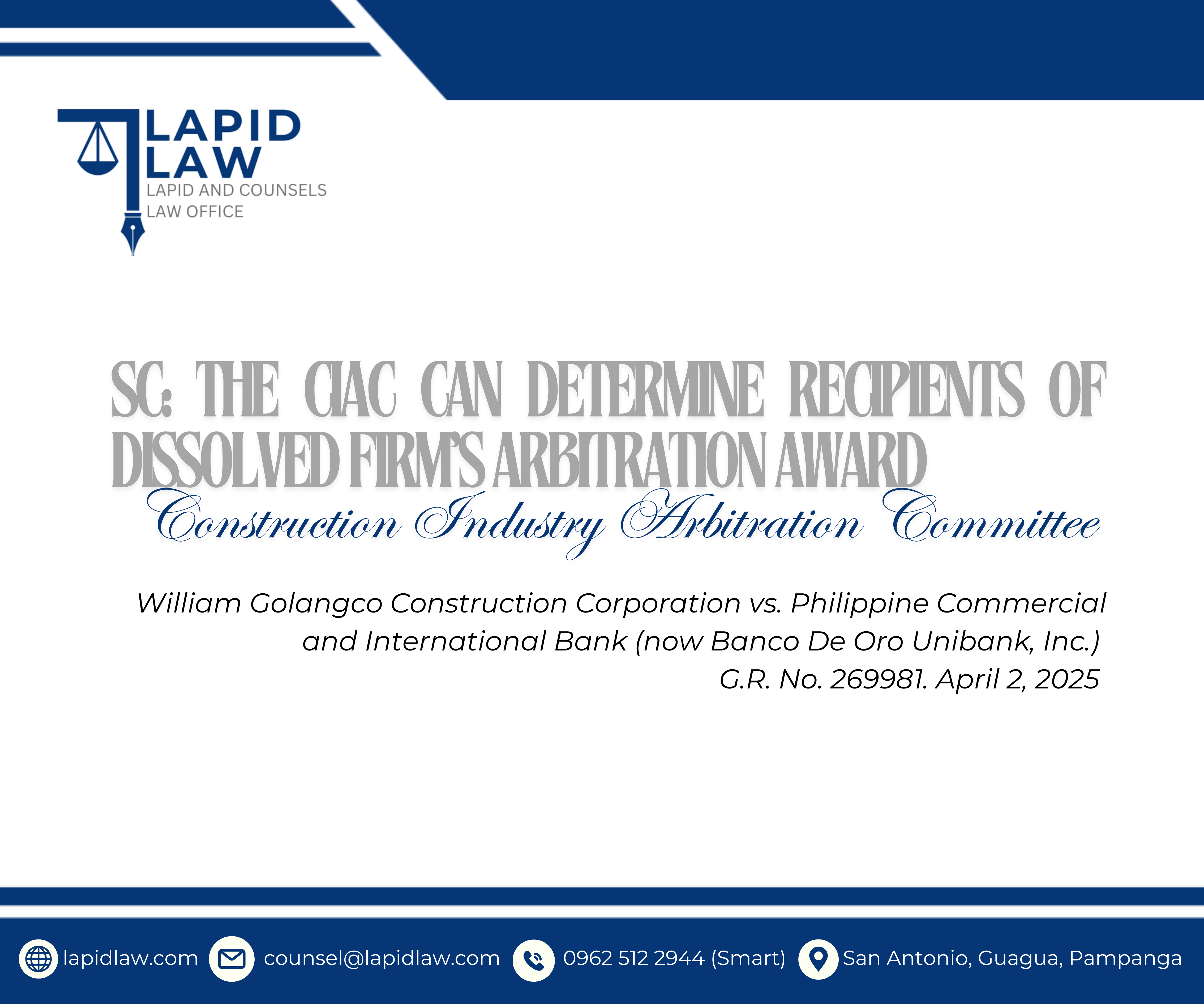Home / News and Updates

Article by: Angelica S. Garcia
In William Golangco Construction Corporation vs. Philippine Commercial and International Bank (now Banco De Oro Unibank, Inc.) (G.R. No. 269981. April 2, 2025), the Supreme Court declared that the Construction Industry Arbitration Commission (CIAC) has the authority to determine who should receive a judgment award granted to a corporation that has already been dissolved.
The case stemmed from a construction project where William Golangco Construction Corporation built PCIB’s tower extension. After completion, defects appeared, leading PCIB to hire another contractor and file an arbitration case before the CIAC to recover repair costs. The Corporation filed a counterclaim for material cost adjustments.
The CIAC ruled in favor of both parties, granting their respective claims. However, before the decision could be enforced, the Corporation disclosed that it had already been dissolved and submitted a list of its former stockholders, heirs, and representatives entitled to the amount still owed. The CIAC then ordered BDO to pay these individuals.
BDO contested the order, claiming that the CIAC had no authority to determine the heirs or representatives of the dissolved corporation’s stockholders who would directly receive the award.
The Supreme Court disagreed, holding that under Executive Order No. 1008, the CIAC has jurisdiction over construction-related disputes and may issue necessary orders to enforce its awards, including identifying who is entitled to receive payment. The Court also noted that BDO had already made partial payments to some identified recipients, recognizing CIAC’s authority.
The SC concluded that CIAC properly exercised its authority in ordering BDO to settle the remaining amount with the Corporation’s stockholders or their heirs. This ensures that the monetary award is distributed fairly, consistent with CIAC’s mandate to fully enforce its decision.
Legal Disclaimer:
The content on this website is for general informational purposes only and does not constitute legal advice. Lapid and Counsels Law Office (Lapid Law) makes no representations or warranties regarding the accuracy or completeness of the information provided. Accessing this site does not create an attorney-client relationship. For legal advice specific to your situation, please contact a qualified attorney directly. Do not send confidential information via email or this website until a formal attorney-client relationship has been established.
© Copyright. Lapid and Counsels Law Office 2025. All Rights Reserved.